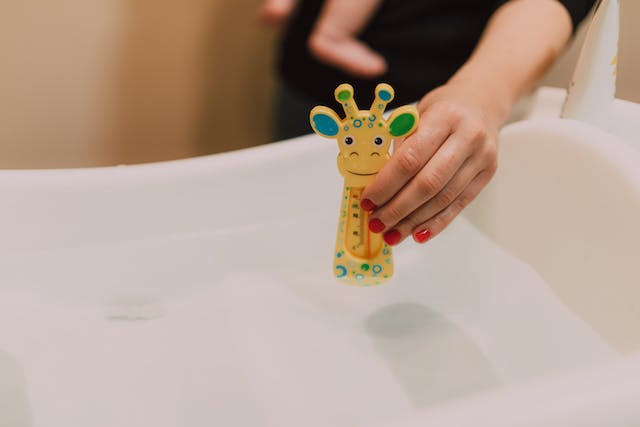It has been up for debate whether thumb sucking causes teeth misalignment or not. While some dentists say that thumb sucking beyond the age of four can damage the alignment of baby teeth. Also, it possibly forms jaw deformities, overbite/underbite, lisp due to jaw alignment, and palate (roof of the mouth) alteration. Others argue that the misalignment of teeth and other dental deformities has nothing to do with sucking thumb.

Either way, orthodontia can be expensive for you and painful for your child, later in life. It can also make their self-confidence suffer in the later years. So, getting rid of the habit at the right time is necessary. Although children grow out of this habit eventually without their parent’s intervention. But if you wish to get rid of the habit, you need to first understand the motivation behind the habit.
Also Read: 9 Things you Should Be Careful While Baby Proofing Your House
Your child does suck his/her thumb because s/he finds it comforting. When they are anxious, it calms them; when hurt, it soothes them, and during bedtime, it lulls them to sleep. Thumb sucking provides them to feel a sense of security, a habit they developed as a toddler. So, getting out of the habit might take time; be patient and try the steps listed below.
Talk to your child:
Explain to your child that the habit is unpleasant. Be kind at the same time firm while explaining it, many times children are not aware themselves about their habit. Also, make sure that you tell them the reasons why it is unpleasant instead of just ordering them to stop. Children often want to be as grown-up as they can be and would understand.
Often children suck on their thumbs unintentionally, not even on purpose. If that is the case with your kids, giving gentle reminders will work like a charm. Do not scold, criticize, or shame your child around others.
Suggested Topic For You: 5 Ways To Handle Fussy Eaters
Once they become aware of their habit they will consciously try to stop. As a parent, you must remain patient and just give a nudge when they stick their thumb in their mouth. But this works only when your child wants to stop.
Also, help them positively reinforce not sucking their thumb. Reward them with gifts and little treats like a stroll in their favorite park. The intention is to praise your child if you find that they are not sucking their thumb.
Recognize what triggers the thumb sucking:
Thumb sucking might act as a soothing action, identify the triggers, such as stress or anxiety. It is their coping technique against those negative emotions or triggers. If you have established the root cause, you can provide your support easily. Try to soothe your kid with an embrace or use soothing phrases to quiet them down. A stuffed animal can also prove an effective pacifier for children. Or help them develop a new coping habit for stress like deep breathing. These small habits go a long way in building their coping mechanism.
Make them wear mittens:
Those foul-tasting solutions that are available in the drugstore should be the last resort to break the habit. For one they might be harmful and second your child might end up developing a taste for it. Also, your child might end up irritating their eyes while rubbing them with their hands. Start with making your child wear mittens or woolen gloves to break the habit. This will stop them from sucking their thumb and it will leave the woolen fuzzy taste in their mouth.
Your kid would likely have the toughest time not sucking the thumb at bedtime. Make them wear mittens to the bed. They might throw a tantrum or two, you can cover their hands with mittens after they fall asleep.
Ignore the habit:
It might seem counter-productive, but sometimes your child can do this only to get your attention. Ignoring their habit will work in this scenario. But be sure that your child is doing this for attention and to understand this you need to know their triggers.
Take help from your child’s dentist:
Speak to the dentist about the effects on your child’s teeth that thumb sucking can have. They will prescribe special dental tools that can help your child grow out of the habit. Or let the dentist talk with your child about their thumb-sucking habit. It might work better, and the dentist might convince the child to not continue this habit.
Children grow out of the habit of sucking their thumb on their own. Some children just hold on to the habit for longer. Parents must understand like they cannot give up their nail-biting or foot-tapping habits easily, children need time too. And be patient with the child. And instead of scolding them whenever they suck their thumbs, parents should reward the child for overcoming the habit.
You May Like:
How tall will your children be when they will be adults?
How can you tell if your child is growing properly, and what can you do to encourage healthy growth? We’ve got information about the average male and female heights for children. Read More:
![]()










